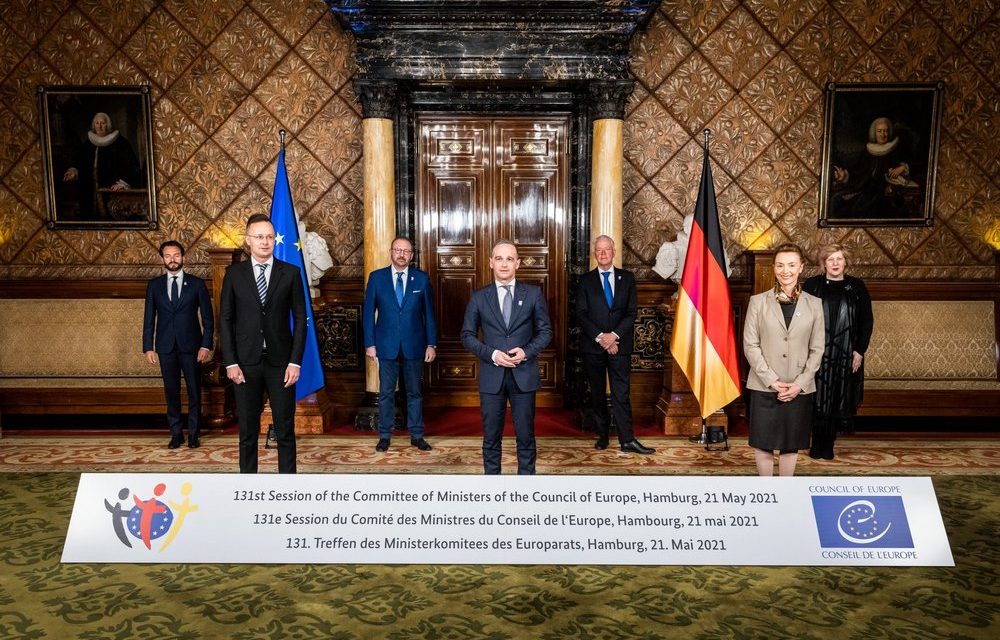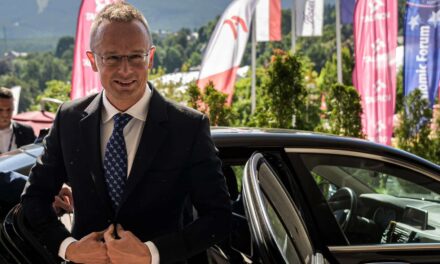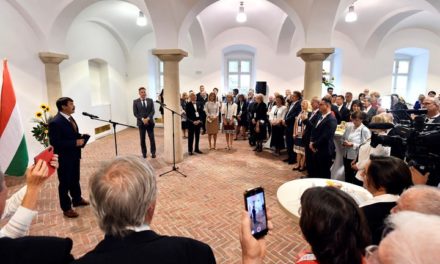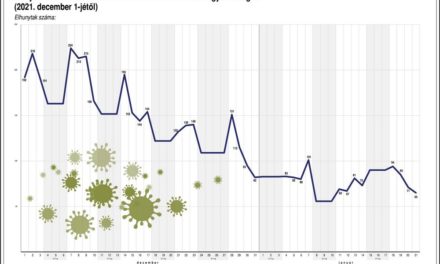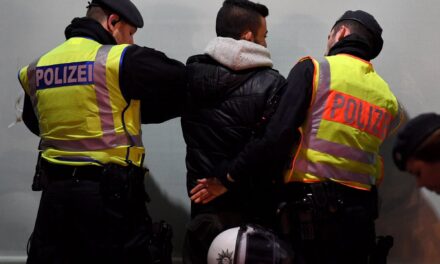From May 21, Hungary will hold the presidency of the Council of Europe for half a year. The focus of the Hungarian presidency is on the issue of national minorities, which is seen not as an exclusively Hungarian issue, but as a European issue, and the protection of the rights of children, families, and religious communities, as well as the challenges caused by artificial intelligence and environmental protection, are also emphasized.
The Council of Europe is not an EU institution, and in this sense it can only have an indirect influence in the European political space on how it influences the legislation and decision-making of the European Union institutions - said Attila Kovács, project manager of the Fundamental Rights Center, in the M1 program Ma regleg.
However, this role should not be underestimated, not least because when a matter or a topic enters the European public discourse, the European Union decision-makers must sooner or later react to it, such as the issue of national minorities and national communities, which so far has not attracted the attention of the European Commission or the European institutions, he added.
European Union institutions deal with sexual minorities, i.e. minorities belonging to the gender issue, all the more.
The Hungarian presidency - which will last until the middle of November in the Council of Europe - will be good for prominently displaying this issue on the European political stage and putting pressure on the European Union institutions.
There are personal overlaps between the two institutions, so the ministerial committee of the Council of Europe includes ministers who also appear in various ministerial formations of the European Council, so there is a personal relationship between the two institutions, but legally we are talking about two separate institutions.
The Hungarian presidency coincides with the Future of Europe conference, which is a European Union initiative
There can be an overlap between the two in the sense that an opinion expressed in one forum can be easily channeled or it is advisable to channel it into the debate on the future of Europe, because the series of conferences on the future of Europe - which ends next spring - is about what those main topics should be with which the European institutions should deal, and when we talk about national minorities, when we talk about the use of minority languages, then these matters can be channeled towards the decision-making of the European Union institutions, said the project leader of the Center for Fundamental Rights.
The term of the current Hungarian presidency will last until the middle of November, which means a half-year cycle, in this sense the length of the cycle is similar to the European presidency.
There is a personal and political transition between the two institutions, there is no other similarity, he added.
The presidency will place Hungary, Hungarian diplomacy, and Hungarian politics not only on the European Union, but also on the global political stage.
This September, with the visit of Pope Francis, the Eucharistic World Meeting will also focus on Hungary and Hungary's political weight. In addition, in the first half of 2022, Hungary will hold the position of president of the Visegrad countries - there is also a rotating presidential system, which also lasts for half a year - and in 2024, Hungary will again hold the presidency of the European Council - after 2011.
The expert sees that
the presidency of the Council of Europe starting today is the beginning of a kind of arc that strengthens Hungary's role on the European and global scene.
The declared aim of the Council of Europe is to deal with issues of democracy, the rule of law and human rights.
The policy of the Council of Europe and other EU institutions, where the issue of the rule of law is linked, and the Hungarian presidency of the Council of Europe starting today is a good opportunity for Hungary to make it clear to everyone in the European political space that the rule of law is a unified pan-European - be it It can be applied to 27 or 47 member states - there is no definition.
Traditions and national and cultural characteristics must be respected, and a uniform solution cannot be imposed on the member states from Brussels or Strasbourg.
Hungary officially took over the position
Hungary took over the presidency of the Ministerial Committee of the Council of Europe (CoE) from Germany at the ministerial meeting of the decision-making body of the international organization held in Hamburg on Friday.
Péter Szijjártó said about the program of the Hungarian presidency until November 17 that they focus on three focal topics, the protection of the rights of national minorities, religious communities, and children and families.
Regarding the protection of national minorities, he highlighted the European citizens' initiative called Minority SafePack for the protection of native national minorities , which was not included in the agenda of the European Commission in Brussels. Referring to the headquarters of the ET, he noted that hopefully, thanks to the Hungarian presidency, "Strasbourg will perform better than Brussels".
Speaking about the protection of religious communities, he underlined that " the phenomenon of Christian persecution has reared its head " in Europe's neighborhood, and it is also particularly worrying that in recent days in many European countries, the demonstrations held in connection with the Israeli-Palestinian conflict have "taken on a clear anti-Semitic tone ".
Speaking about the protection of children and families, he emphasized that due to the coronavirus pandemic, many children have become "users of the digital space without experience and without suspicion", and that these children are "a vulnerable target group for digital criminals and people with sick tendencies".
He added that the protection of children and families requires extensive and strict European regulations. Hungary also introduces "extremely strict" rules in this area, he said.
Péter Szijjártó also spoke about the fact that both the eastern and western half of Europe are represented in ET, and therefore it is a suitable platform for restarting the "cultured dialogue" between the East and the West , which is much needed due to the worsening political conflicts and the "sometimes almost amid Cold War rhetoric'.
The minister emphasized that Hungary, as a Central European country, is interested in dialogue and not in conflict.
"We don't want a cold war at all," declared Péter Szijjártó.
Heiko Maas assured the Hungarian presidency of his country's support, whose work, he said, should be guided by common values.
Marija Pejcinovic Buric , the general secretary of ET, highlighted that the outgoing German presidency "set the bar high". He added that multilateral cooperation for the protection of human rights, democracy and the rule of law is "perhaps more important than ever".
According to its own definition, ET, which brings together 47 European countries, including the member states of the European Union, is "the continent's leading human rights organization". It is an advocate of freedom of speech and freedom of the media, freedom of assembly, equality and the protection of minorities, and helps its members in the fight against corruption and judicial reforms, among others. Founded in 1949, the Venice Commission, a group of constitutional law experts, helps countries around the world with legal advice.
Source: hirado.hu, MTI
Photo: Péter Szijjártó's Facebook page

